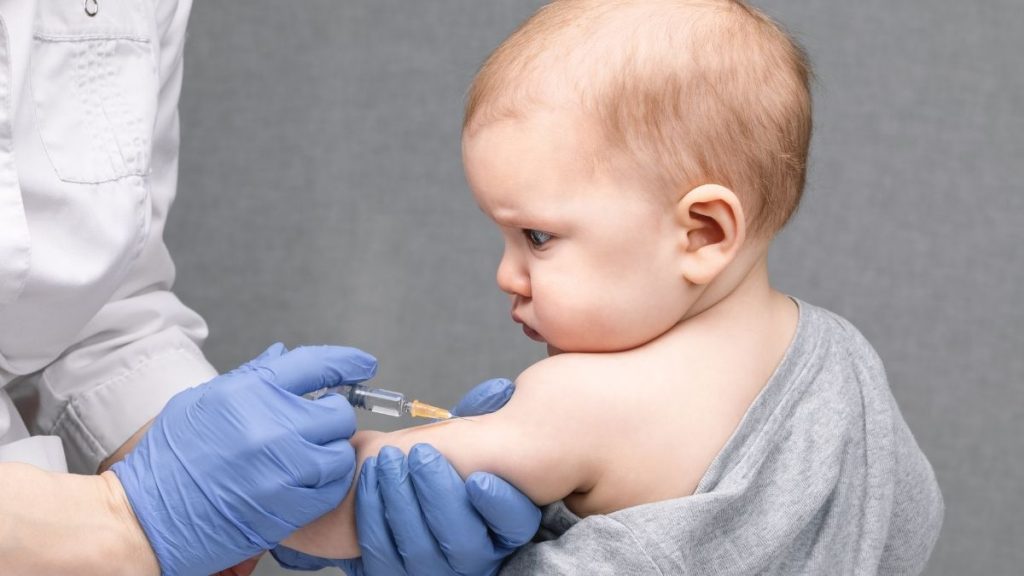Contrary to popular belief, new-borns do not have no or low immunity when they are born. Read more about How Vaccines Strengthen Your Baby’s Immune System. In reality, their immune systems are already well-developed enough to combat the majority of pathogens. But, on the other hand, their immune system isn’t yet prepared to deal with severe and potentially fatal infections. As a result, immunizations are required to build their immune systems and protect them from these dangerous infections and help with child growth.

So how does the immune system work, and what does it do?
You’ve probably heard of viruses and bacteria, which are commonly referred to as germs. Some bacteria can make your infant severely unwell if they get into his or her body hence causing problems with your baby’s child growth.
Your baby’s immune system defends him or her against hazardous pathogens from the moment they are born, a strong immune system is vital for your child’s growth. Your infant’s immune system comprises organs and cells that work together to keep them safe.
Antibodies and memory cells are two crucial components of the immune system. Antibodies aid in the elimination of pathogenic bacteria. Memory cells aid the immune system’s response to infections and disease prevention.
Vaccines: What Do They Do?
Vaccines assist your infant’s immune system in performing its functions more effectively and hence helping with child growth, providing you with improved protection against major diseases that could otherwise put your child’s health at risk. Vaccines are made up of modified copies of the illness with very little levels of antigens. Antigens are components of bacteria that cause your child’s immune system to develop antibodies that fight sickness.
Not only that, but your child’s body will remember essential aspects of the vaccine so that if they come into contact with the germs again, their bodies will fight them off immediately, keeping your child from being ill. Vaccine helps your child live a healthy life and hence causing child growth.This is critical because, while natural immunity develops after you become sick, it is far too dangerous to allow these major diseases to progress. Vaccines, on the other hand, are the most effective form of defence.
Vaccines will safeguard not only your infant but also the adults around them. Because some people may not be able to receive some vaccines that protect them from dangerous diseases, this notion, known as communal immunity, is critical. Getting your child vaccinated may assure that they will not become carriers of diseases that could harm others.
If you get your baby vaccinated before the age of two, you can protect them from 14 potentially fatal diseases
Protecting our children’s health and lives is our top priority as parents. Immunizations are one of the most effective ways to achieve this. However, unfortunately, there are a variety of severe diseases that can afflict them. Still, by ensuring that your child obtains their childhood immunizations, you could prevent them from as many as 14 of them by the time they are two.
The following are some of the dangerous diseases that can be prevented and their vaccines:
- Chickenpox (Varicella)
- Diphtheria (DTaP – Diphtheria, Tetanus, and Pertussis Combination Vaccine)
- Influenza virus (Haemophilus influenza) (Hib)
- Hepatitis A (HepA)
- Hepatitis B (HepB)
- Influenza (Flu vaccine)
- Measles (MMR – Measles, Mumps, and Rubella vaccination) Measles (MMR – Measles, Mumps, and Rubella vaccine)
- Mumps (MMR)
- Pertussis (DTaP)
- Polio (IPV)
- Pneumococcal disease (PCV13)
- Rotavirus (RV)
- Rubella (MMR)
- Tetanus (DTaP)
Your paediatrician will be able to tell you which vaccines your child requires and when they should be given for child growth. Some vaccines may need to be given numerous times in lesser doses to adequately build up your baby’s immune system due to their small size. You must adhere to your paediatrician’s immunization schedule, as this will guarantee that your child takes vaccines at the appropriate times, providing complete protection against these preventable diseases and helping with healthy child growth.
In addition, vaccines provide a barrier of protection around your family and community
When you vaccinate your child, you are also vaccinating your family and friends against sickness. This is especially crucial for those who are unable to receive some immunizations, such as babies, pregnant women, old grandparents, and those whose immune systems have been impaired by medications or diseases.




